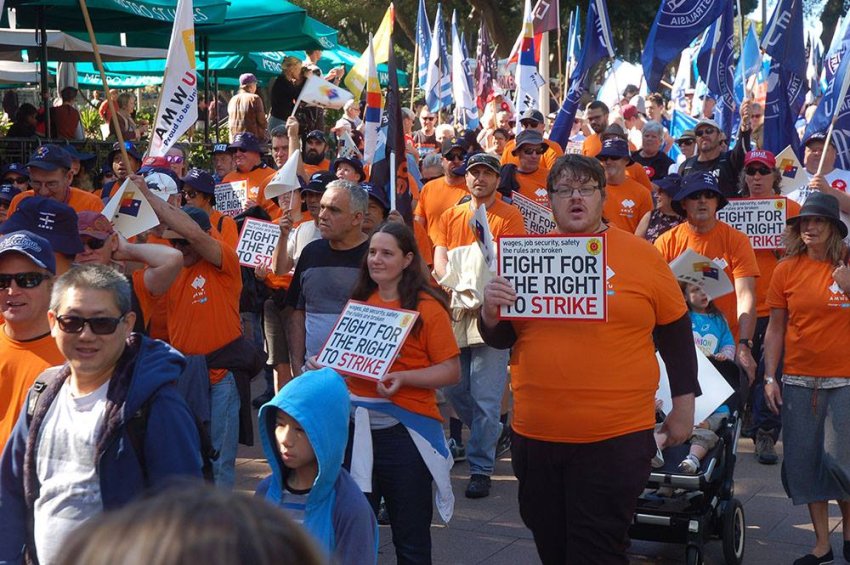
About 60 people attended a forum organised by Right to Strike NSW on June 4 where a panel of union activists discussed the struggle for union rights after the re-election of the Scott Morrison Coalition government.
Assistant national secretary of the Maritime Union of Australia (MUA) Warren Smith noted the election result meant "the Liberal government will have renewed confidence to attack working-class rights and organisation, with a likely further erosion of industrial protections for workers.
"The assault on the right to exercise class solidarity will increase. Individual contracts and agreements will become even more widespread and anti-union laws will be strengthened," he said.
"On the other hand, our aim is to build collective industrial solidarity, and beyond that, move towards a collective society, in the interests of the working class as a whole. We need to proclaim socialism as our goal, and confront the capitalist system, not just its current neo-liberal form.
"Strike struggles play a vital role in maintaining the organisation and strength of the workers' movement. With the re-election of the Coalition government, we now need to plan how we can move ahead with our campaigns.
"We need to oppose class collaboration, in particular any new form of an Accord, which we may have faced under an incoming Labor government. We need to support industry-wide bargaining, not enterprise agreements.
"We need to build a united front movement for the right to strike, for abolition of the Australian Building and Construction Commission and even the Fair Work Commission itself. The right to strike is not a panacea, but it is crucial for the union movement's ability to defend itself.
"The question is how to build such a united front movement for workers' rights — with the eventual aim of working-class power. We must start now on this path."
John Morris, from the NSW Teachers Federation, described his experience with the union movement's Change the Rules campaign in a western Sydney marginal seat.
He called for more united work by the progressive movement. Morris gave the example of the teachers' ban on the NAPLAN school testing program some years ago as a partially successful use of industrial action.
MUA activist and Right to Strike organiser Erima Dall said the result of the election was a setback, but that the lesson is: "We have to break the rules in order to change the rules. The ACTU's official Change the Rules campaign put all its eggs in the Labor electoral basket.
"The question we face now is how to build a labour movement strong enough to fight and win, no matter who is in government.
"The penalty rates issue, which affects 700,000 workers, is still an important target. We still need to fight the next stage of the abolition of penalty rates, due to start on July 1.
"We need to build an independent, progressive union movement. This includes convincing the unions to take a leading role on the environment, including climate change.
"Looking forward, we can still fight and win under a Coalition government. We need to organise to take on the system, industrially and as a whole."